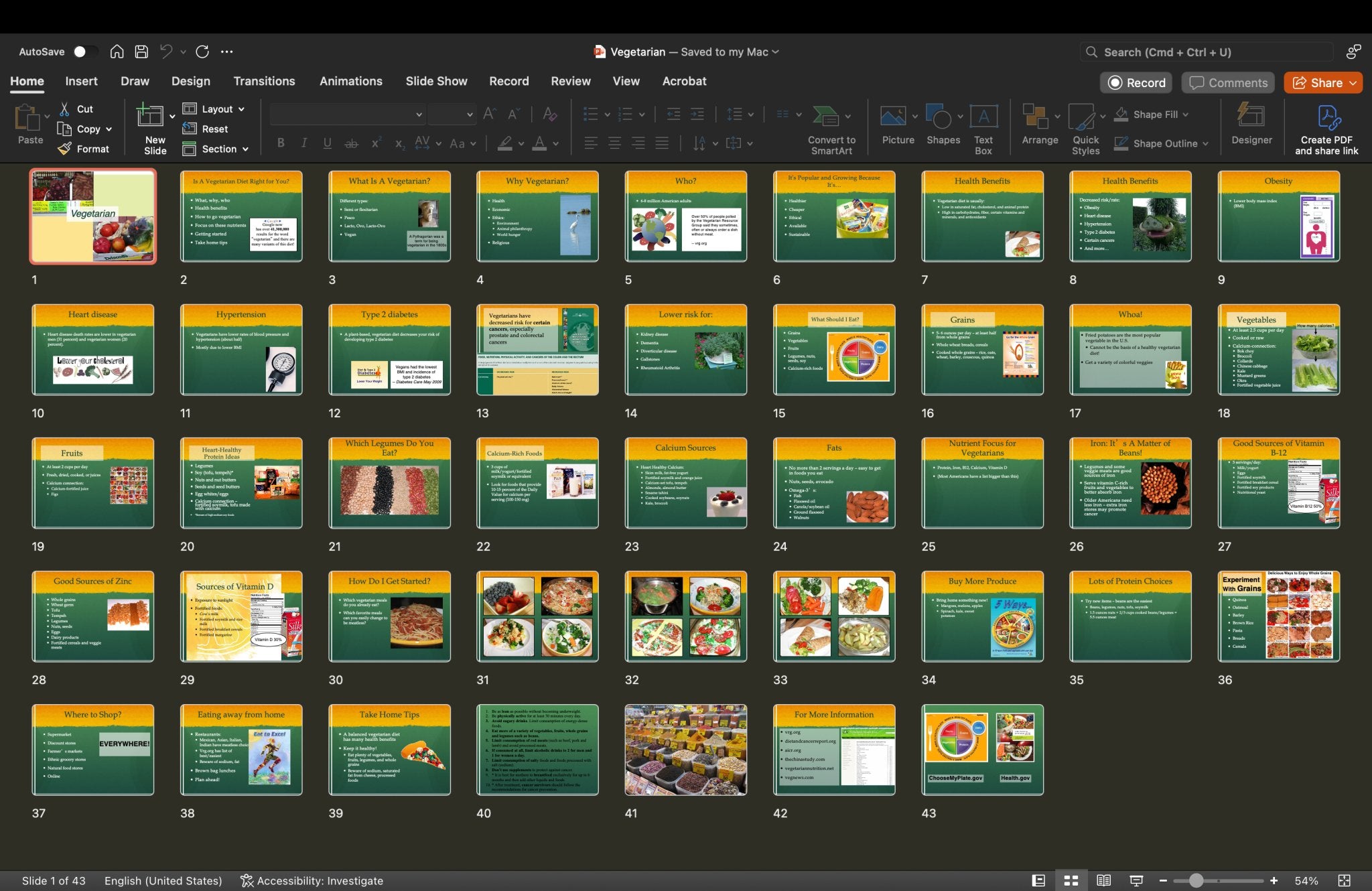From the Impossible burger to the Beyond taco, plant-based ‘meats’ are everywhere. Products like these are fueling the plant-based diet movement.
While we’re thrilled to see this healthy way of eating become more popular, let’s make sure the right messages are getting out there. Today we want to share a few materials and tips to help you quickly put together a class on real-food plant-based eating.
Our Grown, Not Processed poster says it all. The elegant photographs of fresh produce are a reminder of what real food looks like, in stark contrast to the images of fake-meat sandwiches that consumers see every day.
Our Plant Power! poster might be better for younger audiences. They’ll be drawn to the iguana, then realize he’s made up of vibrant photos of plant foods. And the poster comes with a handy plant-based diet quiz!
These are just two examples of materials that can spark a conversation about real food, plant-based eating, and where processed plant-based ‘meats’ fit in. Here are five teaching tips to use:
- Eating Out: Bring some local restaurant menus to class, or ask participants to look up their favorites on their phones. Have them find plant-based items on the menu. Are these options highly processed? High in fat or salt? Help them find the healthiest plant-based menu items, and discuss how not-so-healthy items could be modified.
- Some Meat is OK: Ask participants to name their favorite meat or poultry-based dish. How can they change it so the meat is more of a side dish or garnish? Discuss how a plant-based diet doesn’t have to mean a completely meatless diet.
- Plant-Based MyPlate: Working in small groups, have participants come up with a few plant-based meals that follow MyPlate. On a large piece of flip-chart paper, have them draw a circle (plate) for each meal and fill in the MyPlate sections with the name (or drawing) of the food. The groups can then come together to share their meal ideas.
- Unprocessed Plant Protein: Do a cooking demo featuring beans, peas, or lentils. Pass around small zip-top baggies holding different types of dried legumes so people can see the huge variety of choices.
- Processed Plant Protein: Bring in packaging from products you can find in the supermarket, like frozen veggie burgers and corndogs, chicken-less tenders, fish-less filets, etc. Let individuals or small groups take one or two packages and tell the class about the product, its ingredients, nutrition facts, and how they think it fits into a plant-based way of eating.
Let’s show people that it’s not impossible to fit more plant foods into their diet. In fact, if they go Beyond the processed products advertised on TV, they’re sure to find lots of healthy, delicious, real-food options in the produce section of the grocery store!
Use the code PLANTS15 to get 15% off all of our plant-based teaching resources and prizes! Good until February 1st. Hurry!






